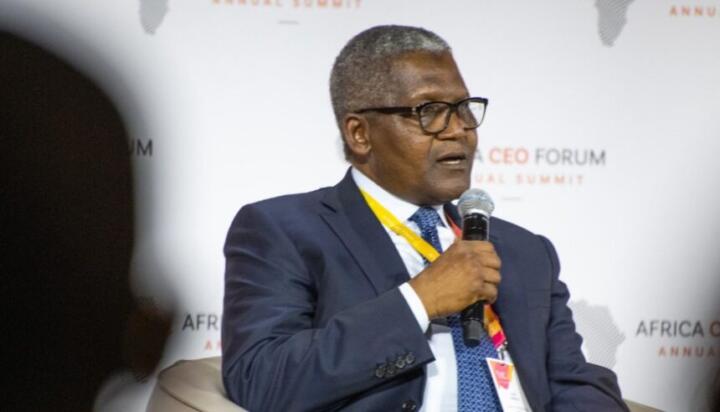The Dangote Group and the Manufacturers Association of Nigeria (MAN) have urged the Federal Government to fully implement and enforce the Public Procurement Act to strengthen local manufacturing, boost economic growth, and reduce the country’s dependence on imported goods.This call was made during the 2025 Nigeria Manufacturing and Industrial Summit in Lagos, which brought together government officials, industrialists, and economic experts to deliberate on strategies for revitalizing Nigeria’s manufacturing sector amid global economic shifts.
Speaking at the summit, Aliko Dangote, President of the Dangote Group, stressed that strict adherence to the procurement law is essential for the growth of domestic industries. He noted that many government agencies still prefer imported products even when local manufacturers can meet quality and capacity requirements, a situation that undermines national industrial development.

“Our industries have the potential to supply what the nation needs. What is missing is the commitment to support them,” Dangote said. “The government must ensure that all ministries, departments, and agencies strictly comply with the Public Procurement Act, which prioritizes the use of locally made goods where possible. This policy, if effectively enforced, can drive job creation, reduce pressure on foreign exchange, and promote national economic stability.”
Dangote emphasized that Nigeria’s industrial base is underutilized, despite having sufficient capacity to produce essential materials for infrastructure, construction, and consumer goods. He added that consistent enforcement of the procurement policy could transform the manufacturing sector into a major contributor to the nation’s GDP.
Also speaking, Otunba Francis Meshioye, President of MAN, underscored that enforcing the procurement law remains a key pillar for Nigeria’s industrial transformation. He pointed out that while the government has introduced reforms to improve the ease of doing business, inconsistent policy application, high operating costs, and weak infrastructure continue to limit industrial competitiveness.
“The only way to strengthen our local industries is by patronizing them,” Meshioye said. “Government projects should prioritize local content. When public institutions source materials locally, it encourages investment, sustains jobs, and promotes economic inclusion.”
Meshioye further called for a structured collaboration between the government and private sector to establish a clear implementation framework for the local content clause embedded in the procurement law. He said this would ensure fairness in contract distribution and empower small and medium enterprises (SMEs) to participate in public procurement processes.
Minister of Industry, Trade and Investment, Dr. Doris Uzoka-Anite, who represented the Federal Government at the event, reaffirmed the administration’s commitment to improving local content participation across sectors. She said the government is currently reviewing the procurement process to make it more transparent and aligned with industrial policy goals.
“The enforcement of the Public Procurement Act is part of our broader economic reform strategy,” Uzoka-Anite stated. “We are also developing sector-specific frameworks to ensure that local producers play a central role in areas such as defense, construction, and energy.”
Economic experts have also thrown their weight behind the call, noting that government procurement represents a major opportunity to stimulate local demand. They argued that aligning public expenditure with industrial goals could catalyze growth and enhance Nigeria’s resilience to external shocks.
Dr. Muda Yusuf, Chief Executive Officer of the Centre for the Promotion of Private Enterprise (CPPE), highlighted that government procurement at all levels should serve as a tool for driving industrial development.
“If the federal and state governments channel more of their spending towards locally manufactured goods, the result would be expanded production capacity, improved value chains, and increased job creation,” Yusuf explained.
He, however, cautioned that enforcing procurement laws without addressing core industrial challenges such as unreliable power supply, poor infrastructure, and multiple taxation could limit the impact of such measures.
Participants at the summit also stressed the need for adopting digital procurement systems to enhance transparency and reduce corruption in contract awards. They urged the Bureau of Public Procurement (BPP) to strengthen its oversight mechanisms and penalize agencies that fail to comply with local sourcing requirements.
The summit concluded with a joint resolution by stakeholders to deepen collaboration between the public and private sectors to promote Nigeria’s industrial resilience. They agreed that strict enforcement of the Public Procurement Act remains vital to achieving sustainable industrial growth, economic diversification, and self-reliance in production.
Support InfoStride News' Credible Journalism: Only credible journalism can guarantee a fair, accountable and transparent society, including democracy and government. It involves a lot of efforts and money. We need your support. Click here to Donate
